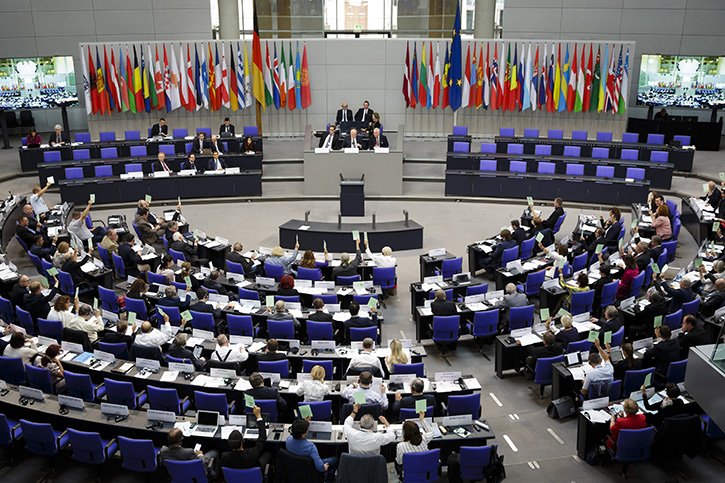The OSCE Parliamentary Assembly’s annual session in Berlin adopted on July 11 a final declaration, containing more than a dozen of non-binding resolutions on issues ranging from political affairs, security, economics, environment and human rights, with one of them on conflict in Georgia.
The resolution, titled Ten Years After the August 2008 War in Georgia and sponsored by MP Sofio Katsarava, calls on Russia to “withdraw its military units from the territory of Georgia,” and to “reverse its recognition” of Abkhazia and Tskhinvali Region/South Ossetia “as independent states.”
In the resolution, the Assembly stresses the responsibility of the Russian Federation, as the power exercising effective control, to “uphold the fundamental freedoms and human rights of all people” living in two regions, and calls on Moscow to “allow the safe, dignified and unhindered return of displaced persons to their place of origin.”
The resolution also condemns “the killing of Georgian citizens” Archil Tatunashvili, Giga Otkhozoria and Davit Basharuli, and urges Russia to “refrain from the obstruction of the thorough investigation conducted by the Georgian authorities” as well as to ensure that “perpetrators are brought to justice.”
It further welcomes the new peace initiative of the Government of Georgia, and calls for achieving “tangible results” in the Geneva International Discussions and for ensuring the access of international human rights monitoring mechanisms on the ground.
The Russian delegation voiced its objection upon introduction of the resolution on July 7.
Berlin Declaration calls for parliaments to strengthen oversight of @OSCE commitments, governments to renew commitment to dialogue and détente https://t.co/lK8wB5mdb5 #OSCEPABerlin2018 pic.twitter.com/ZHBF1v7PS7
— OSCE PA (@oscepa) July 11, 2018
Georgia featured in another resolution as well. The resolution of the OSCE PA’s Political Affairs and Security Committee, authored by Bulgarian MP Kristian Vigenin, reiterates its support “for the peaceful resolution of the conflict in Georgia with full respect to the sovereignty and territorial integrity of the country within its internationally recognized borders.”
It further emphasizes the necessity “for the implementation of the EU mediated 12 August 2008 Ceasefire Agreement, in particular for the withdrawal of Russian military forces from Georgian territory, and the establishment of international security mechanisms with the aim to ensure lasting peace and security on the ground.”
Giorgi Tsereteli, who was re-elected as the OSCE PA President for 2018-2019, spoke on Georgia in his address on July 8, saying “more than 300,000 people are displaced by conflicts and occupation” in the country. “This August will mark ten years since the 2008 war in Georgia and unfortunately the problem is still there: the conflict between Russia and Georgia remains unresolved,” Tsereteli noted.
The Assembly is the parliamentary dimension of the OSCE with 323 lawmakers from the organization’s 57 participating states, including Russia. Its annual session in Berlin was convened on July 7-11, with parliamentarians calling on the national legislatures to strengthen oversight of OSCE commitments and governments to renew commitment to dialogue.
This post is also available in: ქართული (Georgian) Русский (Russian)

